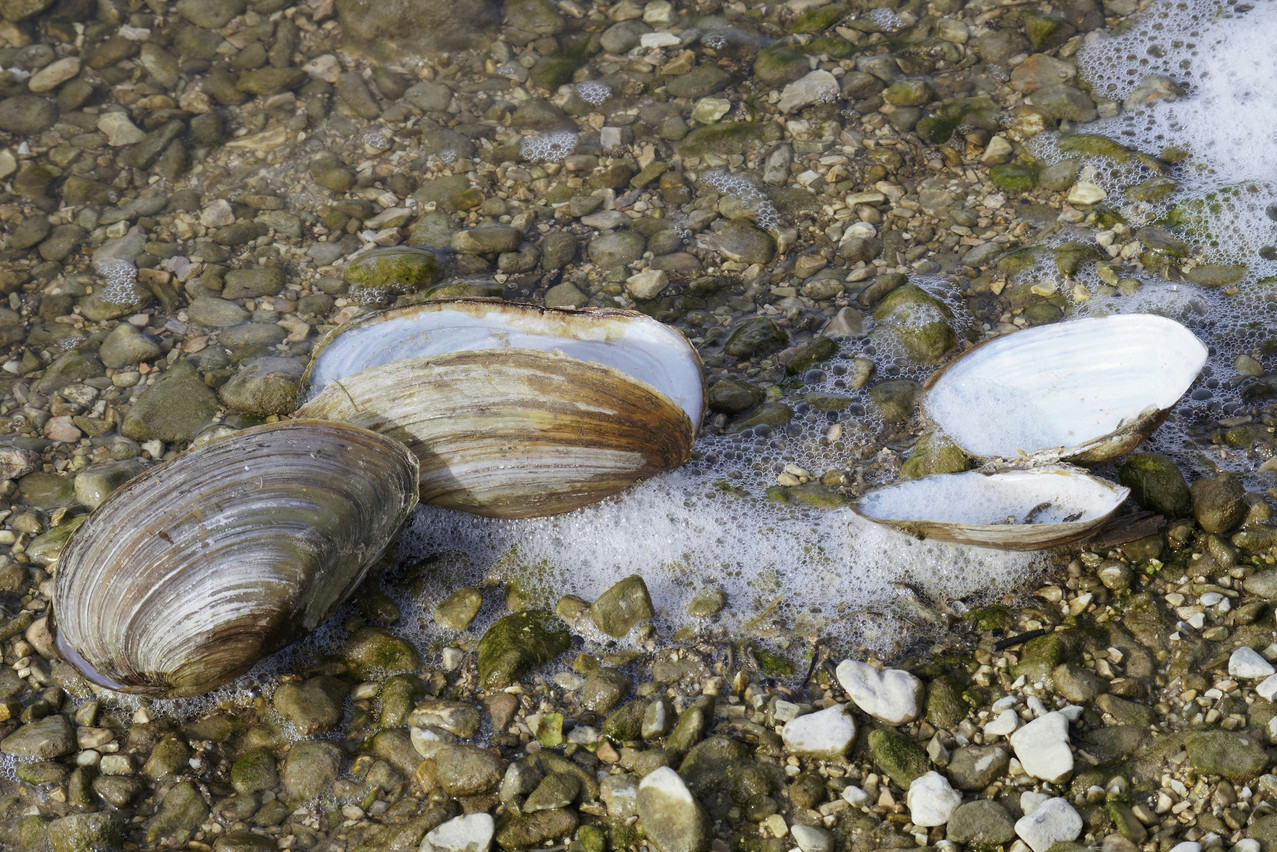At the heart of the Kalborn Mill, nestling in the north of the country close to the German border, a swarm of freshwater mussels is busy with a crucial task: filtering and purifying river water. How do they do this? By filter feeding on the water, these molluscs remove impurities from the water, thereby improving its cleanliness over short distances. The particles not digested by the mussels then settle to the bottom of the watercourse, serving as food for various aquatic insects and crustaceans. Their movement, which constantly reshuffles the gravelly bottom, also creates favourable habitats for fish, which come here to spawn (lay their eggs) under favourable conditions. A healthy mussel population means a healthy ecosystem and quality drinking water available at no extra cost.
Aware of the importance of preserving this biodiversity, Banque de Luxembourg and the Fondation de Luxembourg have decided to actively support a project by the Fondation Hëllef fir d'Natur that aims to protect local biodiversity and improve the quality of freshwater reserves by focusing in particular on the breeding and protection of freshwater mussels.
This project is part of the activities of the Fondation pour le Climat, under the aegis of the Fondation de Luxembourg. Dedicated to the fight against climate change and the preservation of biodiversity, the foundation assists companies looking to support local projects that have a tangible impact in these areas. It also contributes to the objectives of the EU's Water Framework Directive.
“We want to embody our values in strong, assertive actions that have a measurable impact,” stated Banque de Luxembourg's CEO, , in an announcement. “We mobilise our teams, our resources and our ecosystem on a daily basis in order to multiply the positive impact of our activities. Because the raison d'être of our bank only makes sense if we do everything we can to preserve opportunities for future generations.”
Read the original French-language version of this news report /
